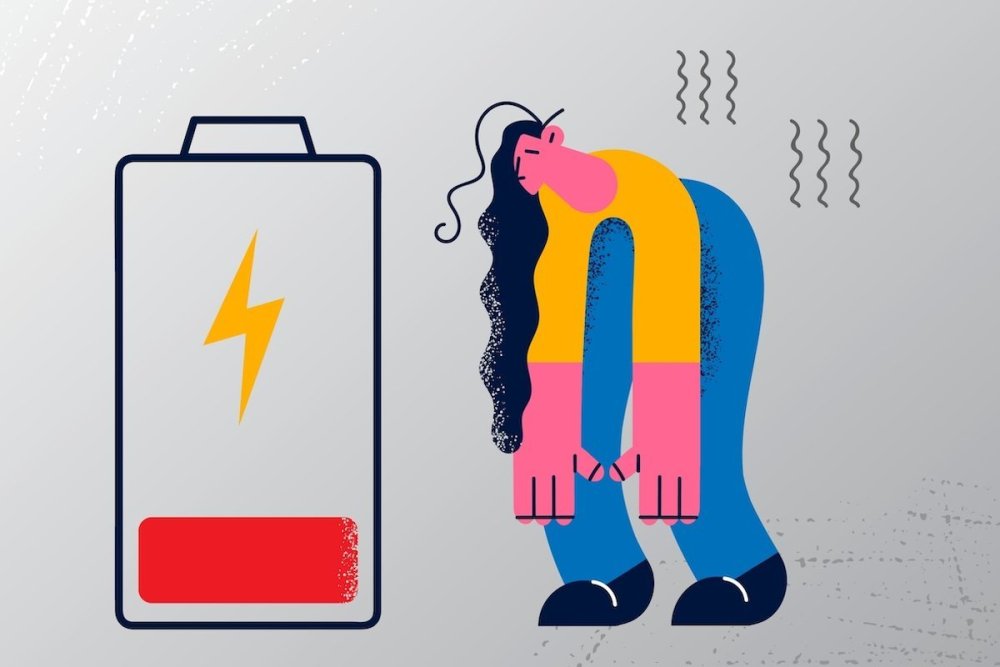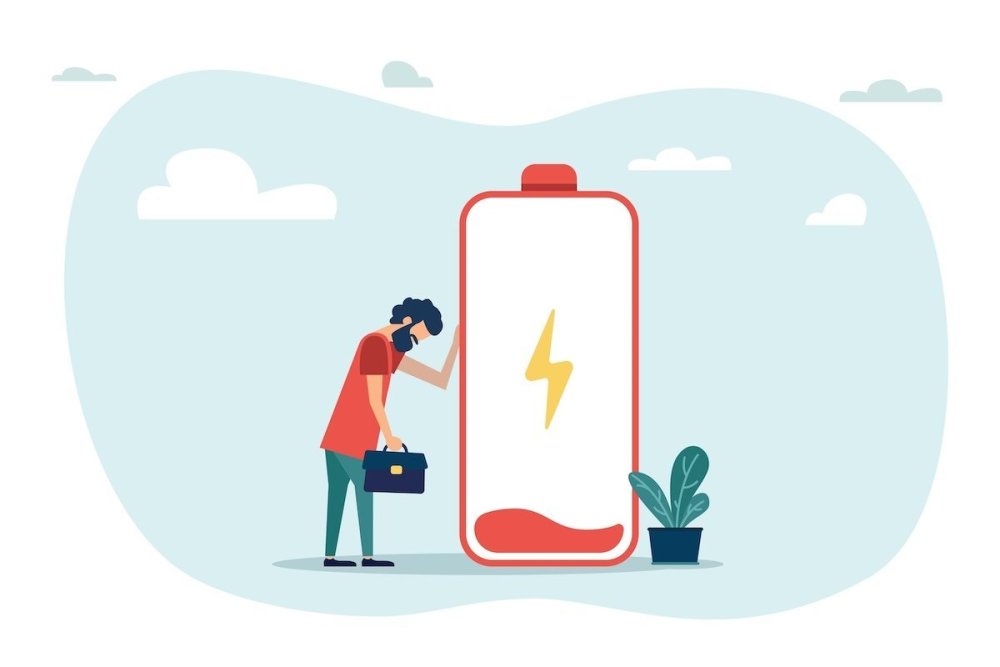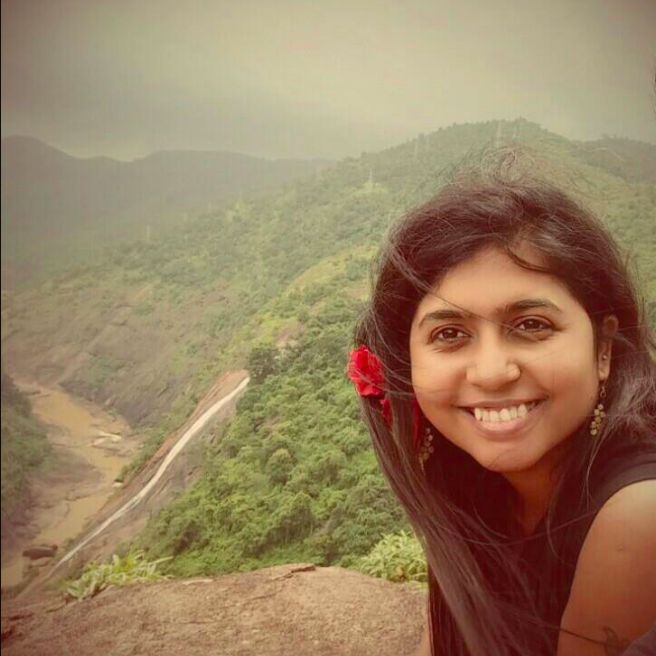How can you protect your energy? Sonia Vadlamani explores research-backed strategies to help navigate situations that leave you overwhelmed, stressed, or drained by negativity.
In a world marked by global uncertainty, over-dependence on technology, and a constant stream of mobile app notifications, our mental reserves are being drained more rapidly than ever. Yet, while we instinctively protect our physical selves, many of us often overlook the importance of safeguarding our mental well-being.
Indeed, we may believe that we have free agency over our choices, but research establishes that we only have a finite amount of mental energy or bandwidth. Known as ego depletion, this concept suggests that each decision or choice we make draws from a finite energy reserve. As this energy reserve dwindles, the quality of our choices and decisions can suffer. In the absence of conscious efforts to protect your energy reserve, you can experience poor decision-making, low productivity, stress, and eventually, burnout.
Why protecting your energy is important
Instances of energy burnout are at an all-time high. The Burnout Report 2025 reveals that 91% of UK adults reported feeling high or extreme levels of pressure or stress in the previous year. Meanwhile, 66% of American adults admit to experiencing burnout at work.
Additionally, you may also feel the need to protect your energy while confronting so-called ‘energy vampires’ – needy friends, demanding colleagues, or emotionally draining instances that can leave you feeling exhausted or overwhelmed.

Low battery? Time to start protecting your energy
Protecting your energy helps you eliminate negativity and distraction from your life in a sustainable and intentional manner. Preserving your energy reserves also helps you pace yourself and avoid negative thoughts and stress, enabling you to focus on what’s more important.
How to protect your energy: 7 ways to prevent energy drain
So, we understand that knowing how to protect our energy is important, but how do we eliminate the stressors that leave us drained? Here are some science-backed ways to safeguard your mental bandwidth:
1. Practice emotional intelligence
Researchers have long emphasized the vital connection between emotional intelligence and overall well-being. Thus, developing self-awareness is the first step toward learning to protect your energy. Make it a habit to check in with your emotions at regular intervals throughout the day.
For example, if you notice signs of stress – like irritability or feeling unusually snappy – it may be ideal to slow down and recharge, perhaps with a spa day or a quiet nature walk. Similarly, experiencing a low mood or emotional numbness could indicate loneliness, and a cozy coffee date with a close friend could be the perfect remedy.
2. Set healthy boundaries
Setting healthy boundaries is a fundamental aspect of protecting your energy. While it can feel uncomfortable – sometimes even rude – at first, establishing and communicating boundaries is a sign of emotional maturity. Whether it’s in friendships, romantic relationships, or at work, boundaries play a vital role across all areas of our lives.
“Setting healthy boundaries is a fundamental aspect of protecting your energy. While it can feel uncomfortable, establishing and communicating boundaries is a sign of emotional maturity.”
In addition to helping us maintain balance and enabling healthier relationships, research suggests that healthy boundaries also serve as a crucial tool for safeguarding our mental health. Indeed, setting boundaries isn’t about pushing people away – it’s about protecting your peace so you can be your authentic self for the commitments and relationships that truly matter.

Set boundaries and keep energy vampires at bay
Nedra Glover Tawwab, mental health therapist and author of the bestselling book Set Boundaries, Find Peace, outlines three simple yet powerful steps to help you protect your energy through boundaries:
- Be self-aware Understand what works for you, be clear about your expectations – both from yourself and others – and what aligns with your values and comfort levels. The clarity attained from this reflection is key to establishing boundaries.
- Communicate openly Convey your needs and preferences clearly and directly, rather than dropping hints or making indirect references.
- Be assertive Express your boundaries respectfully and with confidence, asserting your needs and priorities as a form of self-care.
Remember, setting boundaries may often bring up feelings of discomfort, shame, or guilt. When this happens, it’s important to accept these feelings and still move forward. Giving in to unhealthy patterns can cause resentment, burnout, or even emotional distress.
3. Say “no” more often
Similarly, saying “no” can be awkward and difficult, and for people-pleasers, it can seem like a near-impossible task. However, doing so when your energy is low or your schedule is crammed is crucial for setting healthy boundaries. Saying no also helps prevent negative outcomes like resentment, regret, stress, or burnout.
As a selective introvert, I remember struggling to decline invitations. I’d agree to attend parties, movies, music concerts, etc, just to avoid disappointing my friends. But then I'd return home drained, overstimulated, and with other telltale signs of an introvert hangover.
MORE LIKE THIS:
- How to Stop Feeling Overwhelmed
- Navigating Life: 10 Tips For Overcoming Obstacles
-
How to Overcome Challenges and Move Forward
Over time, and upon self-reflection, I learned that saying no isn’t an act of selfishness but self-care. Interestingly, my closest friends eventually learned to appreciate this shift, since they understood that I was more engaged and enthusiastic when I attended out of interest, not obligation.
We often say “yes” to plans simply to avoid disappointing others, even though we’re stressed, busy, or already overburdened with responsibilities. Incidentally, researchers Julian Givi et al researched this specific aspect, with their study revealing that we often overestimate the potential negative outcomes of declining an invite for a social activity. The truth is that most inviters understand. The same applies for favours asked of you at work as well – if you’re at capacity, it’s OK to say no to additional tasks and stretch yourself too thinly.
4. Create a sanctuary
Create a safe space in your home where you can truly unwind and recharge. Design areas for hobbies, crafts, and activities that help put your mind at ease. These safe spaces can be your simple yet effective answer to protecting your energy.
When I’m feeling overwhelmed, I find comfort in running a bath and reading or cooking a cozy meal for two from scratch. On the days my brain is scrambled with too many details coming from all quarters, I find that taking a short break to work on a jigsaw puzzle helps me reset my focus for the next task.
“Tapping into the power of visualization can be the answer to how to protect your energy. It can help you create a ‘wall’ or mental barrier, allowing you to block negativity and manage your thoughts with intention.”
Having a happy space to return to, especially after a stressful day at work or when you’re overstimulated, can help you recharge and gain a fresh perspective. Remember to declutter these spaces regularly to keep them truly restorative and free of visual chaos.

Power low? Switch off and conserve your energy
5. Use visualization techniques
Tapping into the power of visualization can be the answer to how to protect your energy as it can help you create a ‘wall’ or mental barrier, allowing you to block negativity and manage your thoughts with intention. Regular practice of visualization techniques can help you feel grounded and recharge yourself. Here are a couple of techniques you can try:
-
Create your ‘happy’ place Sit in a quiet place, close your eyes, and visualize a place where you feel happy and calm. This could be your favorite hiking trail – leaves rustling in the gentle breeze, sunlight filtering through the branches, its warmth caressing your skin like a hug. For me, a cherished memory is that of us playing with our beloved dog, Coffee, on the beach – sand beneath our feet, the mewing seagulls, Coffee fetching us small sticks and chasing crabs in sheer glee. Draw in as much sensory detail as possible. Focus on the joy this place brings you. Take deep breaths as you let the positivity fill your heart for a full minute.
- The cloak of protection Imagine wrapping yourself in a protective cloak made of white light, designed specifically to keep negativity at bay. Start at your feet and gradually work upward, picturing this light covering you in a soft, comforting shield. Finally pull the hood over your head, and as you’re cocooned in this cloak, notice the sensory details – the warmth, its softness on your skin, and its reassuring weight. Stay with this image for as long as you need to start the day with a renewed sense of strength.
6. Replenish yourself in nature
The benefits of spending time in nature for our overall well-being are well-documented. Yet, according to a 2018 Nielsen Total Audience Report, most Americans spend nearly 11 hours per day in front of their screens. This growing reliance on technology often leaves us with very little time to step outdoors and connect with nature.
Whether it’s a short walk in the park or a weekend hike in the wilderness, spending time in nature can significantly reduce stress, ease anxiety, and help us protect our energy more effectively.
“Learning how to protect your energy isn’t about placing crystals on your nightstand – it pertains to redirecting your focus intentionally toward what’s more important.”
Interestingly, nurturing something into life can also foster a sense of self-care and well-being. Therefore, projects like kitchen gardening are a great way to connect with nature, as well as reap benefits like better life satisfaction and improved physical and mental health.

Recharge your batteries in nature
7. Breathing and meditation
Breathing may be the most natural thing we do, but deliberate control of breathwork – like slow and mindful breathing techniques, for instance – can be a powerful tool for stress management and healing. Conscious breathing – or intentionally focusing on your breath – has been shown to have therapeutic benefits for our mental health. Practicing breathwork can help you manage stress and protect your energy in a more effective manner.
RELATED: Uncover the Healing Power of the Breath
Meditation is another simple yet powerful technique to reconnect with a compassionate, peaceful space within yourself. Try the loving-kindness meditation technique using visualization: start by directing warmth and positive affirmations for yourself, then gradually extend them to others – loved ones, acquaintances, and even the difficult people around you. Regular practice can help foster empathy, enabling you to stay centered in positive energy.
Takeaway: protect your energy
Learning how to protect your energy isn’t necessarily about chasing good vibes or placing crystals on your nightstand – it pertains to redirecting your focus intentionally toward what’s more important.
Self-awareness is the first step toward protecting your energy. Tuning into your emotions and recognizing tell-tale signs of stress, regret, or mental exhaustion can help prevent your energy from being depleted. Once you identify what you’re feeling, you can respond with intention and choose the most effective form of self-care to restore your balance and recharge your energy. ●
Images: shutterstock/Alphavector, shutterstock/HannaStudio, shutterstock/Rido, shutterstock/Krakenimages.com
happiness.com | The fine art of being: learn, practise, share
Are you a happiness.com member yet? Sign up for free now to enjoy:
■ our happiness magazine with practical life tips
■ share and support in our happiness forum
Written by Sonia Vadlamani
 Fitness and healthy food blogger, food photographer and stylist, travel-addict and future-self journaler. Sonia loves to write and has resolved to dedicate her life to revealing how easy and important it is to be happier, stronger and fitter each day. Follow her daily pursuits at FitFoodieDiary or on Instagram.
Fitness and healthy food blogger, food photographer and stylist, travel-addict and future-self journaler. Sonia loves to write and has resolved to dedicate her life to revealing how easy and important it is to be happier, stronger and fitter each day. Follow her daily pursuits at FitFoodieDiary or on Instagram.


Join the conversation
You are posting as a guest. If you have an account, sign in now to post with your account.
There are no comments to display.